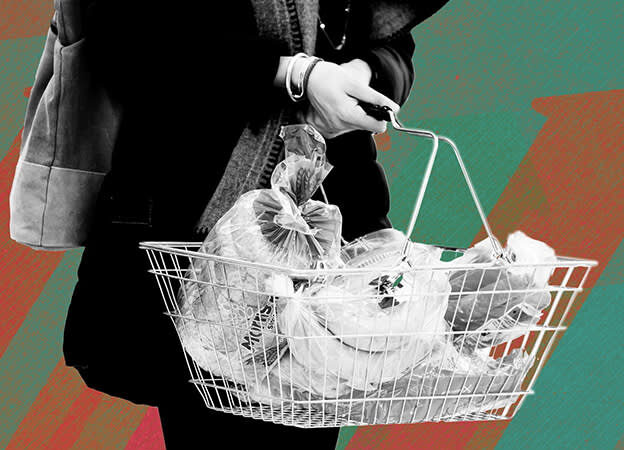
- Business confidence is falling amid rate hikes, but consumers remain optimistic
- Is it only a matter of time before higher rates hit households, too?
Collating economic data can be a tortuous process. On 11 August, a preliminary estimate for second-quarter gross domestic product (GDP) will finally be released – but for the final version we have to wait until the end of September. It takes months to develop an ‘official’ answer on how higher interest rates, persistent inflation and a heavy tax burden are impacting growth.
As a result, economists look to alternative indicators for a sense of how the economy is performing in ‘real time’. Survey-based measures are usually a good bet: by asking firms and households about their experiences and expectations, we can get a sense of how the economy is faring today – and where it might be heading next.
Only, the latest data doesn’t really clear anything up. The latest Institute of Director’s Economic Confidence Index (see chart) suggested a “significant deterioration in the business environment” in June, and a “greater sense of caution in the air”. The Institute of Chartered Accountants in England and Wales’ (ICAEW) Business Confidence Monitor found last month that confidence remains below pre-pandemic levels.
Yet only the day before, on 25 July, the PwC Consumer Sentiment Survey revealed that UK consumer confidence had hit its highest level in 18 months. The latest score of -13 (gloomy, but far better than the trough of -44 reached last September) is now “virtually back to normal, being close to the long-term average since 2008”. It feels hard to square this relative optimism among households with such pessimistic business sentiment.
Take a closer look, and the impact of interest rates could explain these very different results. It seems straightforward that higher interest rates work to slow the economy, but the pass-through is far from obvious. Economists theorise about a raft of complex ‘transmission mechanisms’, and policy time lags are thought to stretch up to two years.
Confidence data suggests that higher interest rates are already starting to hurt businesses. According to ICAEW economics director Suren Thiru, second-quarter performance was anaemic as “high inflation, record wage pressures and rising interest rates stymied business confidence and domestic sales”. Crucially, the institute noted that confidence was particularly impacted in the property, retail and wholesale sectors, thanks to their greater exposure to rising interest rates and a weakening housing market.
But try telling this to households, who seem remarkably unaffected by raising rates – so far, at least. According to PwC’s survey, inflation remains the single biggest factor affecting spending, impacting four in five consumers. The report added that “conversely, only a minority of survey respondents say that they expect interest rates, house prices and rent rises to affect their spending patterns”.
This seems remarkably blasé until you remember that only a small proportion (just over a quarter) of households have a mortgage, and an even smaller proportion (less than half of those) have seen their mortgage repayments increase since the Bank of England (BoE) started to increase rates. While all consumers are forced to confront higher inflation, many have been insulated from the direct effects of rising interest rates.
But as higher rates feed through, the macroeconomic impacts could become harder to ignore. For mortgaged householders, things will be difficult for some time yet – and the impact will be felt throughout the whole economy. Analysts at Capital Economics think that “households may cut back on borrowing and spending as the drag from higher interest rates grows”. They forecast that rising interest rates will ultimately generate a mild recession later this year.
This may come as little surprise to UK firms. According to the ICAEW’s Thiru, “our figures suggest a difficult second half of 2023 with mounting concerns over rising interest rates, a higher tax burden and waning consumer demand all likely to weaken activity in the months ahead”. It is probably only a matter of time until the consumer outlook moves in line with today’s dreary business sentiment.

.png)





